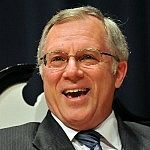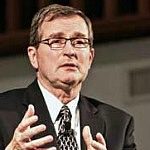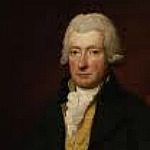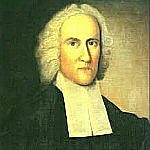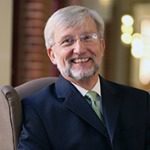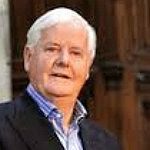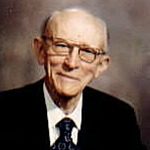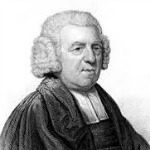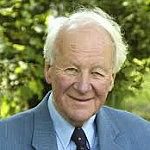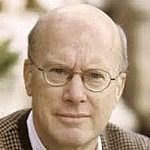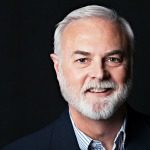Quotes about Knowledge
In spiritual graces let us study to be great, and not to know it.
A Puritan Golden Treasury, compiled by I.D.E. Thomas, by permission of Banner of Truth, Carlisle, PA. 2000, p. 148.
Truth renews the mind. Indeed, the truth which would affect the heart, which moves the heart, which changes the heart, must first enter through the vestibule of the mind if it would enter the sanctuary of the heart. The intention of truth preached is to affect the emotions and the will and the heart and the whole of our humanity…and thus preaching must come first through the mind. It makes its appeal through the mind; it enters through the mind – but it doesn’t simply stop with the mind.
Head knowledge is not evil in and of itself. Most of our Reformed and Puritan forefathers were highly educated. The Reformers never tired of stressing the value of Christian education. But this education must be empowered by the Holy Spirit and applied to the heart. Head knowledge is insufficient without the Spirit’s application to the inward man.
[We] must understand that Christianity is not served by mindlessness, but by the knowledge of God through the Word of God. Such knowledge engages our minds, stirs our hearts, and transforms our lives. This knowledge is personal. How is it fostered? By listening to what He says (the priority of preaching), by engaging Him in conversation (the emphasis on prayer), by spending time in His company (the need for a devotional life), and by being with others who know Him too (the need for gathered worship). This knowledge is progressive and dynamic, not static. At the end of our journey, we should still be exclaiming with Paul: “I want to know Christ” (1 Corinthians 2:2).
Made For His Pleasure, Moody Press, 1996, p. 22. Get this book!
Knowledge is proud that she knows so much; wisdom is humble that she knows no more.
Seek not to grow in knowledge chiefly for the sake of applause, and to enable you to dispute with others; but seek it for the benefit of your souls.
The endless cycle of idea and action, endless invention, endless experiment, brings knowledge of motion, but not of stillness; knowledge of speech, but not of silence; knowledge of words, and ignorance of the Word. All our knowledge brings us nearer to our ignorance, all our ignorance brings us nearer to death, but nearness to death no nearer to God. Where is the wisdom we have lost in knowledge? Where is the knowledge we have lost in information? The cycles of Heaven in twenty centuries bring us farther from God and nearer to the Dust.
There is no such thing as genuine knowledge of God that does not show itself in obedience to His Word and will. The person who wants to know God but who has no heart to obey Him will never enter the sacred courts where God reveals Himself to the soul of man. God does not give divine knowledge to those who have no desire to glorify Him.
He that knows nothing will believe anything.
A Puritan Golden Treasury, compiled by I.D.E. Thomas, by permission of Banner of Truth, Carlisle, PA. 2000, p. 193.
Knowledge provides the illusion of certainty, which then becomes a poor substitute for the more vital confidence of faith.
We cannot pursue biblical knowledge just to grow in knowledge. Understanding doctrine isn’t the goal. Loving God and living in a way that pleases Him need to be our aims. Knowledge tends to puff us up (1 Cor. 8:1-2), but a genuine relationship with God with a true knowledge of His character and love will keep us humble (Isa. 6:5; Ps. 8:3-4).
Whenever evangelicals have an experience of direct, personal access to God, we are tempted to think or act as if we can dispense with doctrine, sacraments, history, and all the other “superfluous paraphernalia” of the Church and make our experience the sum and soul of our faith. We are still attracted to movements that replace thinking and theology by other emphases relational, therapeutic, charismatic, and managerial (as in church growth). Whatever the other virtues of these movements and the unquestionable importance of piety, we must courageously repudiate anti-intellectualism for the sin it is.
If you lack knowledge, go to school. If you lack wisdom, get on your knees! Knowledge is not wisdom. Wisdom is the proper use of knowledge.
Someone has defined knowledge as “the process of passing from the unconscious state of ignorance to the conscious state of ignorance.” Ignorance does not know that it does not know. True knowledge does not know and knows it.
Knowledge of facts is important. Knowledge of truth is essential. Yet our Lord’s concern goes beyond mere head knowledge. He wants us not only to know the truth but also to obey the truth. He wants us to live the truth, practice the truth, and be conformed to and transformed by that truth.
The end of all learning is to know God, and out of that knowledge to love and imitate Him.
A Puritan Golden Treasury, compiled by I.D.E. Thomas, by permission of Banner of Truth, Carlisle, PA. 2000, p. 164.
Believers who have most knowledge, are not therefore necessarily the most spiritual.
[One] objection to the study of theology is that it deceives Christians from simple faith in the Bible. The underlying premise of this objection is that believing is good and knowing is bad. But in fact the Bible lauds both believing and knowing (Rev. 2:23; Matt. 22:37). God has gone to the trouble of revealing information about Himself in creation and His Word. Is it not the height of irreverence to say we should ignore this information? Christianity is about truth and one important way to relate to truth is to know it (Paul Thorsell).
Exultation that does not flow from education, affections that do not flow from knowing, savoring that does not flow from seeing, feeling that does not flow from thinking – are hollow and rootless – noisy gongs and clanging cymbals. And God is not glorified by artificial and empty passions. True delight is rooted in true doctrine. God-centered Exultation is rooted in God-centered Education.
Education for Exaltation, Psalm 100, May 19, 2002, www.DesiringGod.org, Used by Permission.
Education about God precedes and serves exultation in God. Learning truth precedes loving truth. Right reflection on God precedes right affection for God. Seeing the glory of Christ precedes savoring the glory of Christ. Good theology is the foundation of great doxology. Knowledge is utterly crucial. But it is not an end in itself. It serves faith and love. And if it doesn’t, it only puffs up, as Paul says in 1 Corinthians 8:1. Where education does not produce heartfelt exultation in God, it degenerates into proud intellectualism. And where exultation is not sustained and shaped by solid Biblical education, it degenerates into proud emotionalism. God means to be known and loved. Seen and savored. Pondered and praised.
There is a tendency in spiritual circles to think that others (and therefore, God) should be impressed by how much we know. Information equals godliness and spiritual value. We might not say it in those terms, but this terse message is preached loudly by how we live… But (this message in itself is not) affirmed by the Bible. In fact, it is quite the opposite. James tells us that we should prove ourselves doers of the Word and not merely hearers “who delude themselves.” In layman’s terms, knowledge alone deludes us or deceives us into thinking we are spiritual because of how much we know instead of how we live.
Knowledge, not improved and well employed, will only increase our condemnation at the last day.
If knowledge is the accumulation of facts, intelligence the development of reason, wisdom is heavenly discernment. It is insight into the heart of things. Wisdom involves knowing God and the subtleties of the human heart. More than knowledge, it is the right application of knowledge in moral and spiritual matters, in handling dilemmas, in negotiating complex relationships.
If knowledge comes by study, wisdom comes by Holy Spirit filling.
It only stands to reason among those who are truly saved that they will spend the duration of their existence with the desire to grow in their knowledge of Jesus Christ. This is a clear indication that we not only love our Savior, but find Him so magnificent that we wish to continually explore new elements of His perfections. Expanding our relationship with Him through biblical awareness and personal experience is at the heart of knowing Christ, is at the heart of a genuine relationship with Him.
God has made us with a harmony of heart and head, of thought and action… The more we know Him the more we are able to love Him. The more we love Him the more we seek to know Him. To be central in our hearts He must be foremost in our minds. Religious thought is the prerequisite to religious affection and obedient action.
While the rest of the evangelical world seems bound and determined to pursue zeal without knowledge, I fear we have learned to be skeptical about zeal instead of ignorance. The answer to zeal without knowledge is never knowledge without zeal, but a zeal inspired by, driven by, informed by knowledge.
What is Systematic Theology and Why is it Important? March 14, 2014, Used by Permission.
Wisdom is the right of knowledge. To know is not to be wise. Many men know a great deal, and are all the greater fools for it. There is no fool so great a fool as a knowing fool. But to know how to use knowledge is to have wisdom.
The knowledge of God is the great hope of sinners. Oh, if you knew Him better, you would fly to Him! If you understood how gracious He is, you would seek Him. If you could have any idea of His holiness, you would loathe your self-righteousness. If you knew anything of His power, you would not venture to contend with Him. If you knew anything of His grace, you would not hesitate to yield yourself to Him.
Prayer and praise are the oars by which a man may row his boat into the deep waters of the knowledge of Christ.
Sermon #1935, delivered at the Metropolitan Tabernacle, Newington, on Thursday evening, October 7th, 1886.
If we do not know who God is and how He thinks and what He does, we have no grounds for joy, no reason to celebrate, no basis for finding satisfaction in God. Delight in God cannot occur in an intellectual vacuum. Our joy is the fruit of what we know and believe to be true of God. Emotional heat (i.e., joy, delight, gladness of heart) apart from intellectual light (knowledge of God) is useless. Worse still, it is dangerous, for it inevitably leads to fanaticism and idolatry.
The Ultimate Aim of Theology, November 8, 2006, www.enjoyinggodministries.com. Used by Permission.
Knowledge is indispensable to Christian life and service. If we do not use the mind that God has given us, we condemn ourselves to spiritual superficiality and cut ourselves off from many of the riches of God’s grace.
Knowledge without love inflates the ego and deceives the mind. It can lead to intellectual snobbery, an attitude of mockery and making fun of other’s views, a spirit of contempt for those with lesser knowledge, and a demeaning way of dealing with people who disagree.
Leading With Love, Lewis and Roth, 2006, p. 11, Used by Permission. Get this book!
There is a huge difference between knowledge and wisdom. Knowledge is an accurate understanding of truth. Wisdom is understanding and living in light of how that truth applies to the situations and relationships of your daily life. Knowledge is an exercise of your brain. Wisdom is the commitment of your heart that leads to transformation of your life.
Headed for Disaster by Paul David Tripp taken from Dangerous Calling by Paul David Tripp copyright 2012, Crossway Books, a division of Good News Publishers, Wheaton Illinois 60187, www.crosswaybooks.org, p. 26.
Knowledge and wisdom, far from being one, have often no connection. Knowledge dwells in heads replete with thoughts of other men: Wisdom, in minds attentive to their own. Knowledge is proud that he has learned so much, Wisdom is humble, that he knows no more.
Knowledge humbles the great man, astonishes the common man, puffs up the little man.
Quoted by Curtis C. Thomas, Practical Wisdom for Pastors, Crossway Books, 2001, p. 60.
Knowledge without repentance will be but a torch to light men to hell.
Christians must realize that just as a fire cannot blaze without fuel, so burning hearts are not kindled by brainless heads. We must not be content to have zeal without knowledge… To follow Christ and become more like Him, we must engage in the Spiritual Discipline of learning.
Spiritual Disciplines for the Christian Life, 1991, p. 224, Used by permission of NavPress – www.navpress.com. All rights reserved. For more information please see the website www.BibicalSpirituality.org. Get this book!
Just as we cannot believe and love Him of whom we have not heard, so we cannot grow in our faith and love of Him if we do not learn more about Him. We will not grow much in Godliness if we do not know much of what it means to be Godly. We will not become more like Christ if we don’t know more of what Christ is like.
Spiritual Disciplines for the Christian Life, 1991, p. 227, Used by permission of NavPress – www.navpress.com, All rights reserved. For more information please see the website www.BibicalSpirituality.org. Get this book!

